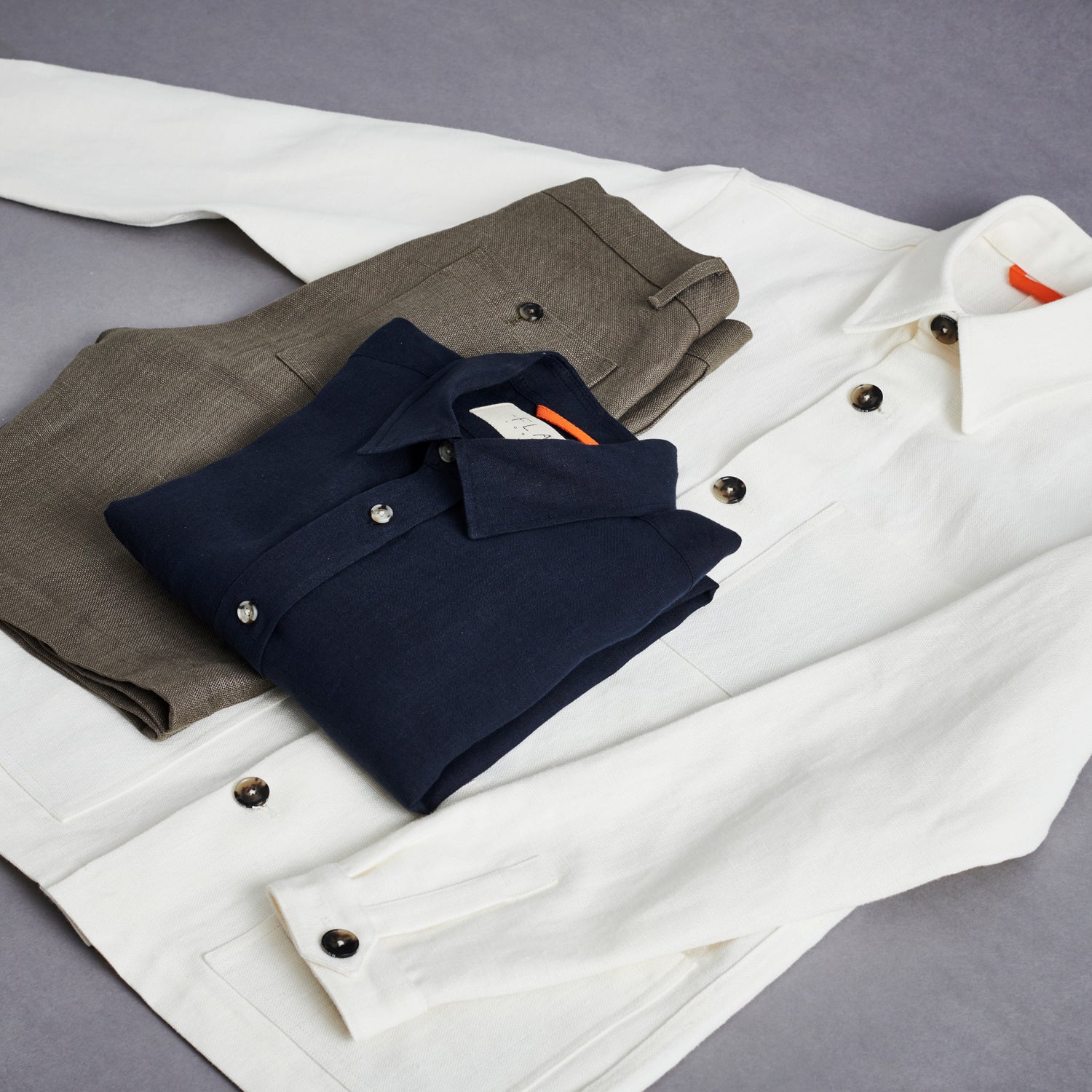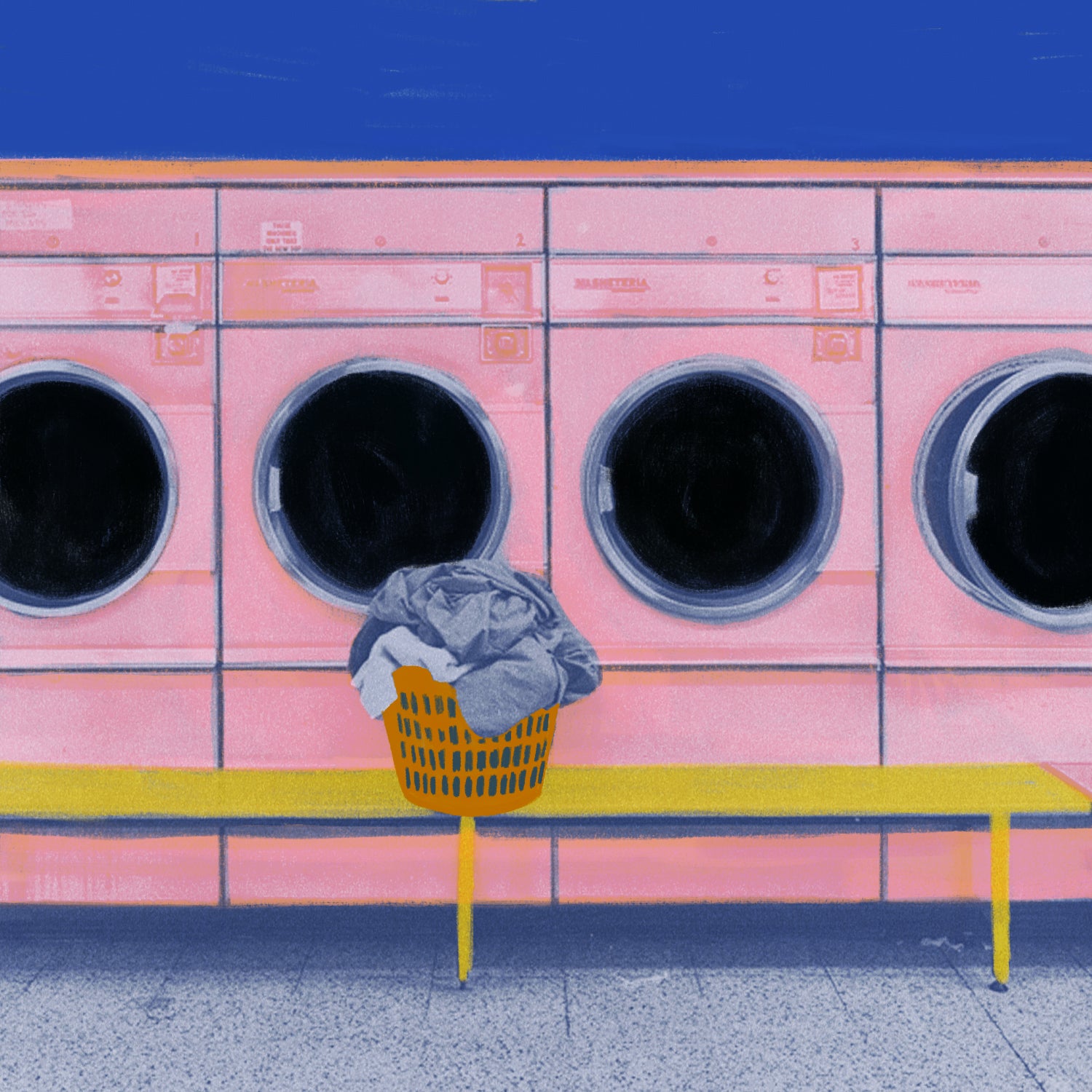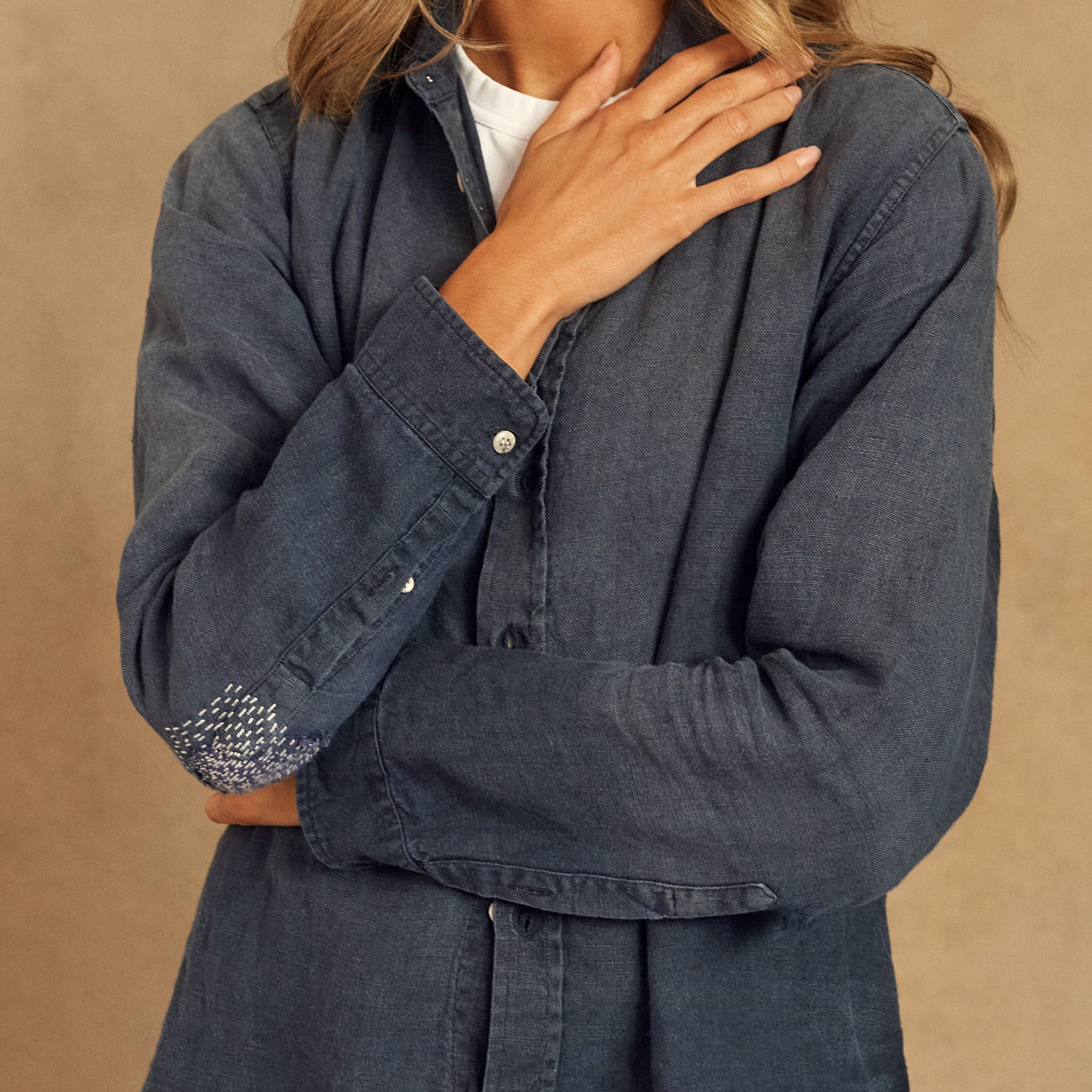
Our three pillars of conscious clothing

1. Making Clothing
The making phase comprises materials, manufacturing, and distribution. What goes into making the materials that make up a piece of clothing, the impacts on people and planet of manufacturing those materials into clothing, and the method of getting that clothing to customers.
Why is it important?
There are two major concerns at this stage. One is environmental, one is ethical. The impact making a piece of clothing has on the planet, and the impact it has on the people making it.
Clothing factories - and the production processes therein - are thirsty for fossil fuel-based electricity. Something which has obvious implications when it comes to greenhouse gas emissions. As it stands, the industry accounts for an estimated 10% of global CO2 emissions.
And then there’s the working conditions. The majority of the 60 million garment workers around the world live below the poverty line, without the ability to negotiate their pay. The industry is littered with examples of brands shelling their responsibility to account for the conditions experienced by the people making their clothing. A deliberate disconnect that’s been nurtured over decades.
The Global Slavery Index tells us the clothing industry is the second biggest sector associated with modern slavery. A bleak reality.
Comprehensive accountability is paramount. It starts with an understanding of how materials are made, continues into a guarantee of workers’ conditions, and finishes with an appreciation for what it takes to get clothes to their destination.
Using 100% European linen and wool
We are totally dedicated to using linen as the primary fabric across every piece of clothing we make. We use 100% European linen - sourced from highly accredited linen mills in Northern Ireland and Belgium – and 100% Italian Wool - sourced from the oldest mill in Northern Italy.
Linen and wool are inherently sustainable and our supply chain is geographically compact, reducing our carbon footprint and making the most of local climates.
Locality & accountability of supply chain
As a starting point, every aspect of the clothing we produce happens within Europe. The furthest afield is the milling stage of our heavy linen, which happens in Poland. The rest happens in Belgium, Northern Ireland, Portugal or London.
It also matters what happens along that journey. The mills we use have all focused on overhauling their processes to minimise their impact. Our Belgian mill is a carbon neutral factory, our Northern Irish mill specialise in techniques that minimise water usage, our Italian mill runs on 100% green energy and has a rate of 74% reuse and recovery.
Workers’ rights and regulations are guaranteed by laws in all the countries associated with our supply chain. But we make regular visits to our factories, talking to our pattern cutters, machinists, quality assurance team, and all the people responsible for making our clothes. Nothing is hidden from us. No deliberate disconnect.
Minimal packaging
When it comes to the environment, the best kind of packaging is no packaging at all.
To date, we’ve always rooted our approach to packaging in that mantra. That’s why we use as little as possible. No plastic sheets, no unnecessary paperwork. Just what’s needed to keep the contents safe until they reach our customers’ hands.
The process is totally plastic-free, from the factory right to our customers’ doors.

2. Caring for Clothing
We're talking about the processes required to keep clothes clean and in working order. As a rule, the less washing you do, the longer a piece of clothing lasts and the lower the energy consumption of that clothing.
Why is it important?
The era of fast fashion has encouraged us to throw things away when they show the first signs of damage. But keeping a garment for an extra 9 months is said to reduce waste and water usage by 20-30%. Imagine what an extra 5 years would do.
The energy required to wash clothing is a very significant factor in its total energy usage from fibre to end of life. It is often the least appreciated aspect of that energy matrix, but even washing clothing on a cold setting can make a material difference across its lifetime.
The solution is to create something that doesn’t need washing after every wear and washing it in a careful way when it does need a wash. If you complement that with a 'repair, don't replace' mindset, we can breathe many more years into the lifecycle of our clothing.
Linen and wool's anti-bacterial properties
Linen and wool are naturally durable materials that doesn’t need regular washing because of their inherent anti-bacterial properties. We recommend wearing an item at least 4 or 5 times between washes.
Free Repairs Service & Workshops
To counter the idea that something needs to be thrown away when it’s ripped or worn through, we offer a Free Repairs Service on any Original Fibres item. Anyone who buys a Original Fibres item can get that item repaired for free, as and when necessary. Simply reach out to us at of@orginalfibres.com and let us know what needs fixing.

3. Disposing of Clothing
Here we're talking about what happens to a piece of clothing at the end of its life. Landfill and/or incineration are the predominant routes.
Why is it important?
For context, over 150 billion items are made every year, creating 92 million tonnes of textile waste at the last count. Which equates to a rubbish truck’s worth of waste produced every second. A staggering stat.
It’s a process that was encouraged by the world of fast fashion, an era in which clothing has become cheap and disposable. The materials associated with the world of fast fashion only exacerbate the problem, with millions of tonnes of synthetic fibres already consigned to a fate of permanent existence in landfills.
We’re breaking the linear, cradle-to-grave narrative for clothing by extending the lifecycle of an item through repairs and repurposing/upcycling fabrics when the original item is beyond repair.
Biodegradable materials
We use exclusively natural, biodegradable materials in the clothing we make. From the fabrics to buttons and labels. So, even if it does end up being thrown away, it’s going to make minimal impact versus the synthetic fabrics which make up so much of the clothing made today.
Moving towards circularity
For the occasional piece that’s beyond repair, we have an Exchange Programme which means we repurpose the fabric and offer 20% discount on a replacement for the customer. Linen and/or wool can get a new lease of life as a tote bag, an apron, or even as pocket lining for new items.
Fabric recycling
There are big strides being made in the efficient and effective recycling of existing clothing fibres to create new fabrics. We will continue to monitor the recycling of linen and wool fibres, and where applicable, invest in relevant schemes.

